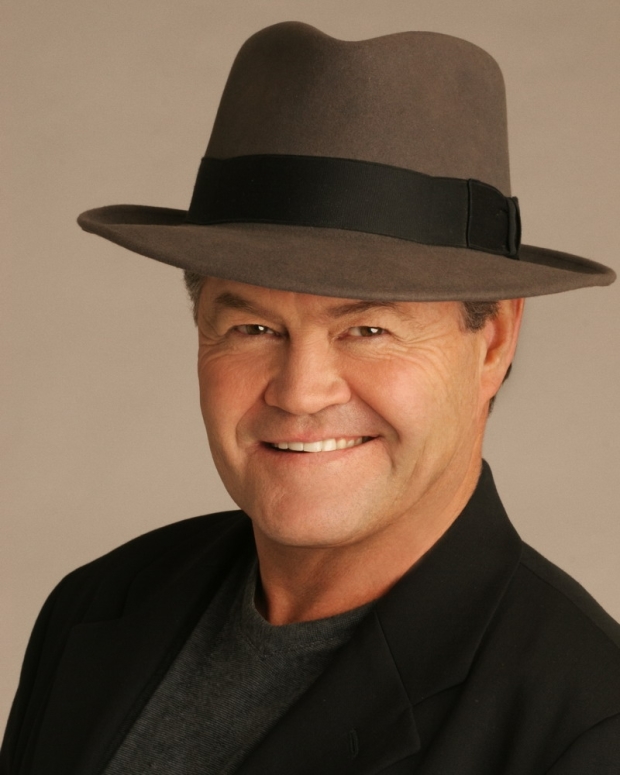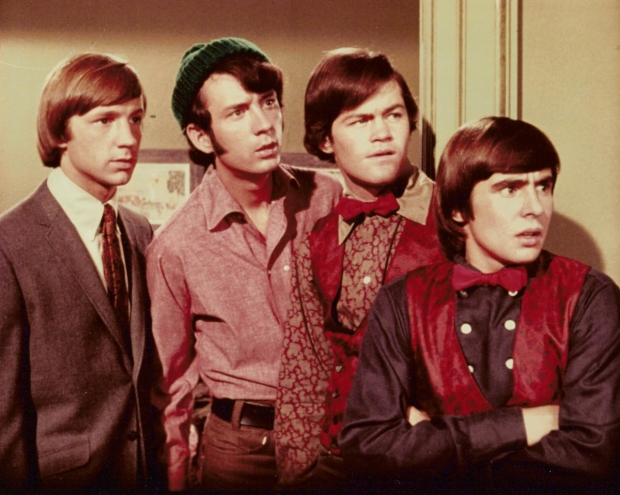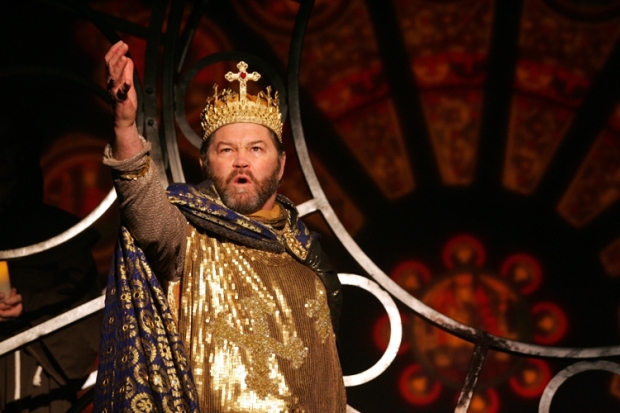Micky Dolenz: From the Monkees to Broadway to 54 Below
The rock ‘n’ roll icon is preparing for his debut cabaret show, which blends his dual musical loves.
You may know Micky Dolenz as one of the original Monkees, the legendary rock 'n' roll band that originated from the classic 1960s television show of the same name. But were you aware that the lead singer on hits like "I'm a Believer" and "Last Train to Clarksville" is also an accomplished theater veteran? From Broadway's Grease and Aida to London's Hairspray, over the past 20 years Dolenz has added another dimension to a career that began when he was just 10.
Now, he's gearing up for three concerts, on July 7, 10, and 11, at Broadway supper club 54 Below, where he'll blend his love for rock music with his affection for showtunes. Dolenz recently gave TheaterMania a preview of his show and discussed his favorite Monkees song, the showtune that got him three separate gigs, and his status as a sex symbol.

You're best known for your work as a Monkee, but you also have a big Broadway history. How did you transition from rock star to theater actor?
I was always a fan of theater. I started late in life. I lived in Los Angeles and there's very little theater there, much less musical theater. But I always wondered how you get into that. It wasn't until the nineties that I got my big show, which was Grease. I did it here on Broadway and on the national tour, and then after that, A Funny Thing Happened on the Way to the Forum, and then Aida, and most recently, Hairspray in London's West End.
Tell me about your show and the set list.
The name of the show is A Little Bit Broadway, a Little Bit Rock 'n' Roll. It's tough to find Broadway songs that work out of context of the show [they're in]. We worked up a lot of different material and found a half dozen or so. I'm doing one song that I love from Urinetown, called "Don't Be the Bunny." It's gotten me [roles in] three different shows, including Pippin, as King Charlemagne, at Goodspeed. And then things like "Pure Imagination" from Willy Wonka and "Mr. Cellophane" from Chicago, and a couple of others. It's funny, the songs I thought would work didn't, and the songs I thought never would work, did. They resonate and you're feeling it, or you're not. As far as the Monkee tunes, I'll do all the big hits.
So many great songs came out of your Monkee days. Do you have a favorite?
I was blessed with having some of the greatest writers writing for me in those days: Carole King and Gerry Goffin, Neil Diamond, Diane Hildebrand, Carole Bayer Sager, Barry Mann and Cynthia Weil. Amazing songwriters. I love all the [Monkees] material; it's hard not to. I love "Pleasant Valley Sunday," the Carole King and Gerry Goffin tune. I'll be doing that.

What was it like for you when the Monkees became iconic and took off?
You know, I was in the business long before the Monkees. I had my first series when I was ten. Circus Boy on NBC. So when the Monkees came along…I approached it as an actor-singer-musician and just did my job, essentially. It wasn't until many years later that I realized the impact it had on the American cultural landscape.
What was the tipping point?
In 1986, we had that huge reunion [a sell-out, 100-city, 20th Anniversary tour]. I was shocked. I'd kind of put it behind me. I had moved on to different things. I was living in England. I was directing and producing television and films. [The tour] was like, Whoa.
As an interesting side note, I did Aida for the best part of two years on Broadway and the national tour. I was sitting in my dressing room at the Palace Theatre one day adding up all the performances I had done, figuring out how long I actually worked on that show. Turns out, I worked on Aida longer than I worked on the Monkees!
What is it like to have been a worldwide heartthrob?
[laughs] You'd have to ask somebody else that question. I've never thought of it like that. Having been in the business all my life, I know in my heart of hearts that it's not me that's the heartthrob, it's the character I played on the television show. It's the persona, not the person. I've always made that distinction.

(© Diane Sobolewski)









